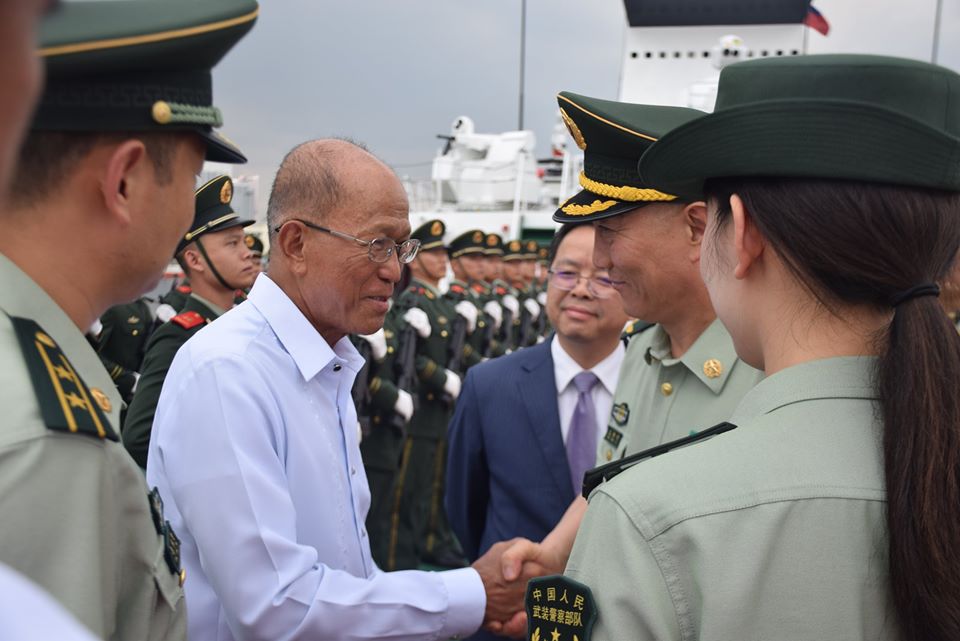Contextualizing news: TV reports capture irony of Chinese Coast Guard “friendly” visit

WHOAH! IT’S the Philipiine Coast Guard (PCG) making “nice-nice” with the Chinese Coast Guard (CCG). How should any self-respecting journalist report the event?
With tongue in cheek or a strong dose of skepticism which would call for context – in order to tell more about the real story than the regular stenography typically applied in current coverage.
Cheers to ABS-CBN 2’s TV Patrol, GMA 7’s 24 Oras, and CNN Philippines’ News Night for giving the necessary background in reporting the CCG port visit from January 14 to 19 by referring to past cases of incursion in Philippine waters by vessels of the same CCG.
These reports stripped the visit of any pretense that Filipinos could expect a change in China’s policy in the West Philippine Sea (WPS). While China continues to blatantly dismiss the validity of Philippine sovereignty, every gesture or motion on the part of the CCG should be confronted with media questions.
In a briefing before the visit, PCG Commandant Admiral Joel Garcia called the gesture between the two parties “Coast Guard Diplomacy.” When asked probing the questions by the media, the commandant, however, gave unsatisfactory answers further proving Duterte’s refusal to pursue to ensure broad international support for the arbitral decision which upheld Philippine sovereign rights over disputed waters.
When the CCG Vessel 5204 moored at the Port of Manila on January 14 to start its joint rescue and training exercises as well as diplomatic talks with the PCG, reports echoed Garcia’s description of the event “unprecedented” and “historic.” Without reference to China’s aggressive patrolling on the WPS, reports on the exercise became part of China’s soft power propaganda.
Print reports merely quoted official statements and described the giving of gifts and aid. TV did better.
Chiara Zambrano’s report on the five-day visit for TV Patrol on January 11 referred to past encounters between PH vessels or Filipino fishing boats and CCG. She pointedly detailed two encounters, one in March 2014 when CCG chased the Philippine Navy away from Ayungin Shoal and another in 2016 when it did the same to Filipino fishermen in Scarborough Shoal.
24 Oras and News Night aired similar reports and recalled previous encounters with China Coast Guard. Both Jun Veneracion and David Santos noted PCG’s red carpet welcome, while contrasting the fire-power capabilities of the CCG and PCG’s naval ships, noting the latter’s distinct disadvantage.
Out of the four primetime newscasts monitored by CMFR, only TV5’s Aksyon failed to contextualize its coverage. A snippet of CCG donating goods was just a part of a report on the aid and relief received by Taal volcano victims.
TV Patrol, 24 Oras and News Night displayed the importance of providing background by referring to past events to show the whole picture. Contextualization of news helps viewers and readers to better understand the real meaning of current developments. If the CCG is changing tactics, there is no reason to throw caution to the winds while extending welcome to possibilities. For the media, providing context is a step towards more truthful reporting, exposing when necessary the deception in state propaganda.
Leave a Reply